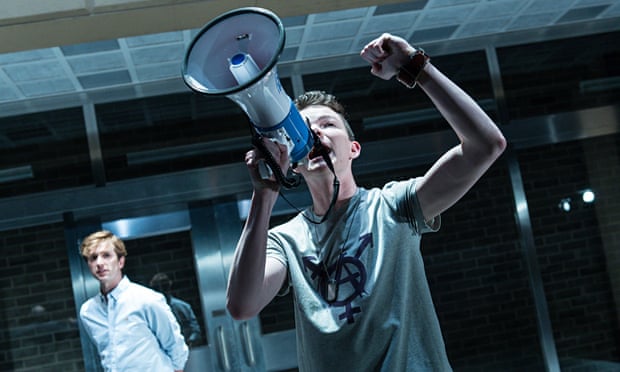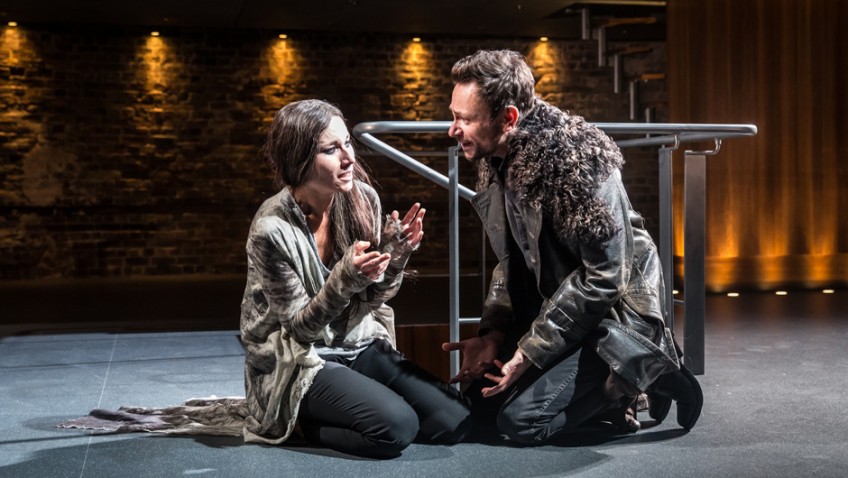The Menier Chocolate Factory is a wonderful place. It has charm and subtlety, two things in which Anthony Howrowitz's play distinctly lack. Based in Baghdad on 19th March 2003, the concept is that Saddam Husein visits a household for dinner where Ahmed Alawi and his family of a rebellious daughter and an informant nephew and a familiar looking plumber greet him. As you could tell from the set up, hilarity ensues as things go wrong.
After the lights went up, I overheard an audience member say 'I've just seen Carry On Baghdad' which almost sums it up completely. However, at least the Carry On films had laughs in it. As lead actor Sanjeev Bhaskar like me is a devoted Wittertainee, I thought I would use Mark Kermode's 6 laugh test. It failed. Apart from a few smirks, I did not laugh at a single joke in the whole of the play. From the rat poison in the spice jar to the date/poo mix up, it left me profoundly cold. Anthony Horowitz cites Michael Frayn's Noises Off as inspiration for trying to approach the sensitive subject of the Iraq war with humour. How dare Horowitz for daring to compare a comic masterpiece to his pathetic 'Mrs Brown's Boys' styled disaster. That would almost be bearable if they didn't try to be serious at the end. It takes a massive tonal shift in the last minute of the play which is the most disgusting and offensive moment of the whole play. After a load of poo jokes and mix ups, to have the gall to try and effectively shock the audience with a bomb is the worst scene I have every scene in a theatre. The set is well designed by Tim Shorthall and the cast try to make the most of it. Sanjeev Bhaskar is a great actor who occasionally breathes life into the play and Steven Berkoff is quite goo as the dictator Hussein. However, there is a distinct lack of chemistry that is needed to put on a great comedy such as the Play that Goes Wrong. The few redeeming features can not appease the shockingly poorly written script to the extent that even American Idiot the Musical would cleanse my mind and be a treat.








